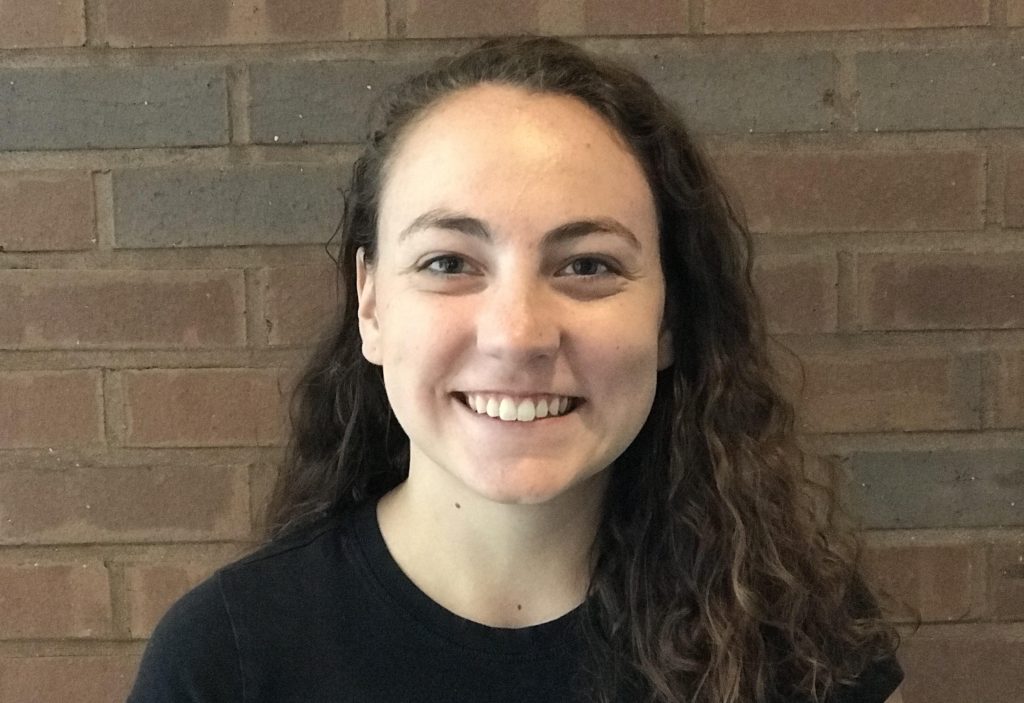We’re taking time over the following weeks to get to know the members of the GSA’s Early Career Scientist Committees. Join us every week to learn more about our 2019 early career scientist advocates.

Abigail DiVito
Career Development Subcommittee
University of Pennsylvania
Research Interest
My research investigates how chromatin state determines the gene expression programs associated with reproductive arrest, an organism’s way of manipulating their developmental schedule to better match their environment. In unfavorable conditions, Drosophila melanogaster females can arrest development of their ovaries, lower their metabolic rate, and greatly extend their lifespan. The physiological mechanisms of this arrest are well understood, but how arrest is mediated by gene expression changes is not. I’m comparing chromatin states and gene expression programs between arrested and reproductive flies to uncover mechanisms by which developmental decisions are mediated by changes in chromatin.
Chromatin, the complex of DNA and the proteins associated with it, influence transcriptional activity. These proteins can be modified so genes are up- or down-regulated, allowing the same genome to produce very different phenotypes in response to environmental conditions. I am studying how chromatin mediates gene expression changes in response to environmental exposure. In particular, I am interested in the role of chromatin in reproductive arrest, a near-ubiquitous response to environmental stress. Understanding the basis of gene expression changes underlying reproductive arrest will have important implications in fertility research as well as in predicting adaptive responses to climate change.
As a PhD-trained scientist, you have many career options. What career paths interest you the most?
I enjoy staying up to date in my field and incorporating new advancements into my work. Careers in policy and communication are of interest to me due to the importance of synthesizing primary literature for diverse audiences. I look forward to using my strengths of reading and synthesizing information to assist others in making decisions based on sound data. This type of work requires that I utilize both my research experience and communication skills, which will allow me to use my PhD to make an actionable difference.
During my time as a graduate student, I’ve worked to refine these skills by communicating information and my own research to scientists across many fields. It can be challenging to communicate complex information to people in diverse subfields of biology, but I find that to be an exciting challenge. To expand upon these skills and further prepare myself for communication and policy careers, I’ll be writing communication pieces for diverse audiences outside of academic science through the GSA and other science outreach opportunities.
In addition to your research, how else do you want to advance the scientific enterprise?
In science, we often leave behind great ideas and collaborative potential due to miscommunication. The way science is communicated often leaves it inaccessible to non-specialists. It‘s not uncommon to read a paper or hear a talk that can only be understood by those within the field. This slows down advancement and cross-disciplinary application by leaving behind those who do not understand the nuances. Outside of the scientific community, this results in public distrust and leads people to make uninformed decisions regarding science and policy.
Throughout my career, I aim to communicate ideas to policy makers. Accomplishing this requires that I be a strong leader in my field, raising issues to positively change the accessibility of science. The most effective way to make change is to inspire others to adopt behaviors and attitudes that help to bridge the gap between scientists and diverse audiences. I will focus on advocating for the adoption of notes to the public from scientific journals, increased social media presence for scientists, and use of diverse communication mediums—including graphical abstracts.
As a leader within the Genetics Society of America, what do you hope to accomplish?
I hope to use my leadership position in GSA to increase the visibility of career paths available to PhD scientists and how to prepare for those careers. As means of communication are ever-evolving in the era of smartphones and social media, we as scientists should take advantage of these tools to reach broader audiences. Communicating what I learn from other scientists through the Decoding Life interview series, as well as advertising this series on social media, will help to reach other early career scientists looking for information regarding career options. I hope to provide these resources not only about what different career paths are out there, but providing information about how best to prepare for them. I look forward to contributing to the Decoding Life interview series and expanding the wonderful career guide it provides.
Previous Leadership Experience
Coordinator, Penn Academy for Reproductive Sciences — University of Pennsylvania
Consultant, Penn Biotech Group — University of Pennsylvania
Peer Mentor, College Park Scholars Program — University of Maryland
Recruitment Ambassador — University of Maryland
Connect with Abigail DiVito on Twitter.













